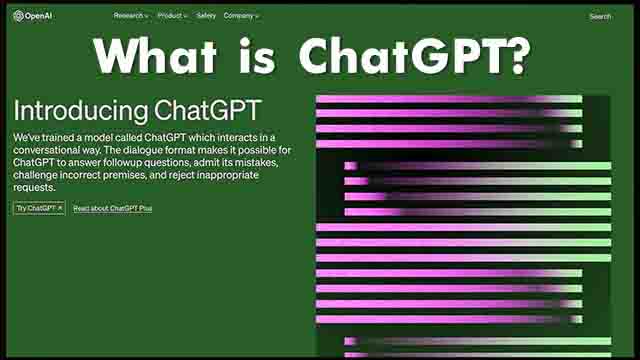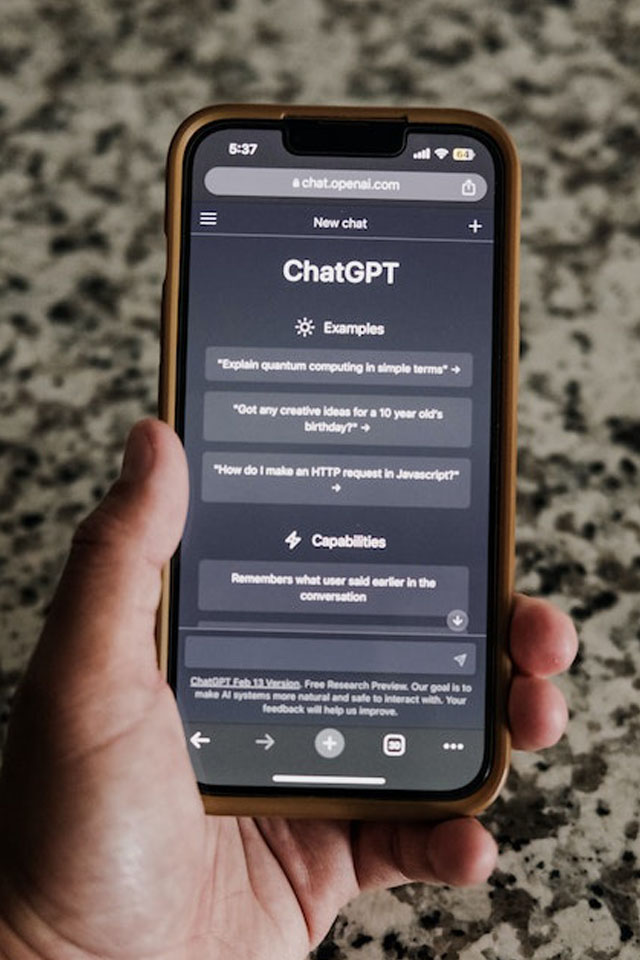What is ChatGPT? Utilize ChatGPT: AI-Powered Chatbot Assistant to Make Money

ChatGPT is a cutting-edge AI-powered chatbot that utilizes natural language processing to interact with users in a human-like manner. It can answer questions, provide recommendations, and assist with tasks such as writing, composing emails, summarizing text, and much more. It is designed to continuously learn and adapt to provide better responses and interactions over time, making it an increasingly valuable tool for a wide range of applications.
What is ChatGPT?
ChatGPT is a computer program created by OpenAI that can understand human language and give responses that sound like they were written by a human.
It was trained by reading lots of text from the internet, so it can answer questions and talk about many different topics.
ChatGPT is designed to be used in conversations, such as customer service or personal assistants. It can also be customized to work in specific areas, like social media or translation.
ChatGPT is an advanced language model that has shown great improvement compared to older models and is a valuable tool for creating conversational AI applications.
ChatGPT can do many things! Here are some examples:
- Answer questions: ChatGPT can answer a wide range of questions on various topics, from science and history to entertainment and current events.
- Language translation: ChatGPT can translate text between different languages, making it a useful tool for communication across language barriers.
- Writing assistance: If you need help writing an essay, email, or any other type of document, ChatGPT can provide suggestions and feedback to help you improve your writing.
- Personal assistant: ChatGPT can help you stay organized by setting reminders, scheduling appointments, and providing recommendations based on your preferences.
- Creative writing: If you're a writer, ChatGPT can help spark your creativity by generating prompts or ideas for your next project.
- Customer service: ChatGPT can be used as a customer service chatbot to answer frequently asked questions and provide support to customers.
- Generate text: ChatGPT can generate text that is similar in style and tone to a given piece of text, making it useful for tasks such as summarizing articles, generating captions for images, or creating personalized content.
- Recommendations: ChatGPT can provide personalized recommendations based on your preferences, such as suggesting books, movies, or music that you might enjoy.
- Language learning: ChatGPT can help language learners practice their skills by engaging in conversations and providing feedback on their language use.
- Mental health support: ChatGPT can be used to provide mental health support, such as offering coping strategies, relaxation techniques, or referrals to resources.
- News updates: ChatGPT can keep you up-to-date on the latest news and events by summarizing articles or providing real-time updates.
- Games: ChatGPT can be used to create simple text-based games, such as trivia or choose-your-own-adventure stories.
In short, ChatGPT is a language model created by OpenAI based on the GPT-3.5 architecture. It uses deep learning algorithms to generate human-like responses to text-based queries and conversations. Its vast database and natural language processing capabilities allow it to provide relevant and accurate information on a wide range of topics.

ChatGPT: AI language model developed by OpenAI
What is the use of ChatGPT?
Here I would like to include 10 potential uses for ChatGPT:
- Providing customer support and answering frequently asked questions for businesses and organizations
- Generating natural-sounding responses for chatbots and virtual assistants
- Assisting with language translation and interpretation in real-time
- Generating creative writing prompts or ideas for writers
- Providing personalized product or service recommendations based on user preferences
- Generating summaries or paraphrases of longer texts for quick understanding
- Generating educational content such as quizzes, study materials, and online courses
- Providing medical advice and assistance with symptom diagnosis and treatment suggestions
- Providing legal advice and assistance with legal document creation and interpretation
- Generating automated news summaries and personalized newsfeeds based on user interests
What is the meaning of ChatGPT?
The term "ChatGPT" is a combination of two words: "Chat" and "GPT".
- "Chat" refers to the act of conversation or communication between two or more individuals through text-based messaging.
- "GPT" stands for "Generative Pre-trained Transformer", which is a deep learning architecture developed by OpenAI for natural language processing tasks such as language translation, text completion, and conversation generation.
Therefore, "ChatGPT" refers to a conversational agent or chatbot that utilizes the GPT architecture to generate human-like responses to text-based queries and conversations.
Is ChatGPT free?
As an AI language model, ChatGPT is not a commercial product or service that can be bought or sold. However, access to OpenAI's GPT models is provided through API access, which requires users to have an API key and pay a fee for the usage based on the number of requests made.
Additionally, there are several chatbot platforms and services that incorporate GPT-based models, which may have their own pricing plans and fees. Some of these platforms may offer free plans with limited functionality or usage limits, while others may require a paid subscription.
In summary, the availability and cost of using ChatGPT depends on the specific application and platform being used.
OpenAI has introduced a premium version of GPT-4 called "GPT-4 Plus" which is designed to offer enhanced performance and features compared to the standard version of GPT-4.
Here are the features of the ChatGPT Plus upgrade plan:
- Available even when demand is high: With the ChatGPT Plus upgrade, you will have access to the AI language model even during peak demand times when the free plan may not be available.
- Faster response speed: The ChatGPT Plus upgrade plan promises a faster response time than the free plan, allowing for more efficient and effective conversations.
- Priority access to new features: As new features and updates are released for the ChatGPT Plus model, users with the upgrade plan will have priority access to these features before they are made available to users on the free plan.
From where does ChatGPT get its data?
ChatGPT is a language model developed by OpenAI and is trained on a vast amount of textual data gathered from various sources. The specific sources of data used to train ChatGPT may vary depending on the version and specific use case of the model, but generally, the data is gathered from publicly available sources on the internet such as:
- Websites and online forums
- News articles and publications
- Books and other written material
- Social media platforms such as Twitter and Reddit
- Chat logs and conversation transcripts
OpenAI's language models, including ChatGPT, are trained on a massive scale, with billions of words and phrases processed to improve the model's language processing and understanding capabilities. The model is designed to learn and adapt based on the patterns and structures it detects in the text data it is trained on.
ChatGPT is a computer program that can write articles for websites that are optimized for search engines. This has become popular and some people are worried that freelance writers who offer similar services may lose their jobs. This shows how technology like ChatGPT can change the way people work and the job market. However, the impact of this technology on different industries is not yet fully understood.